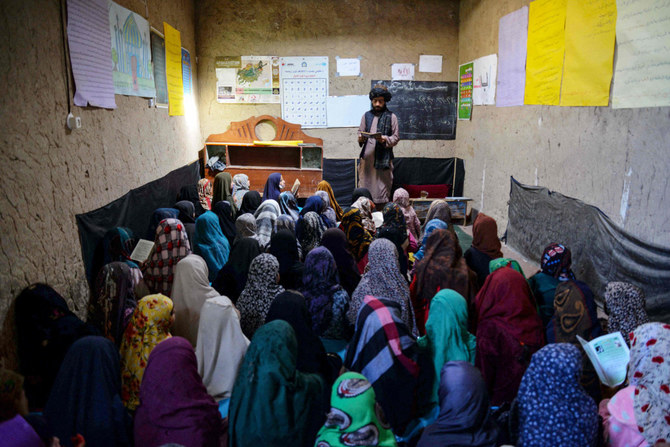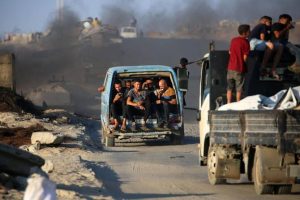Bleak Prospects for Afghanistan: Doha Conference Fails to Deliver on Key Objectives

The recent conference in Doha aimed at discussing the future of Afghanistan proved to be a failure, setting a bleak tone for the country’s prospects in 2024. Special envoys from over 25 countries and organizations convened to address two primary objectives: establishing a framework for international engagement with Taliban-controlled Afghanistan and selecting a UN special envoy to facilitate diplomacy and intra-Afghan dialogue. Unfortunately, both goals were unmet, leaving the Afghan people in a precarious situation.
The conference’s failure was unsurprising, given the last-minute boycott by the Taliban. The group objected to the UN’s inclusion of representatives from Afghan civil society, revealing the contentious nature of the meeting. The absence of key figures, such as those from the National Resistance Front and participants in the Vienna Process, raised questions about the selection criteria for civil society representatives.
The exclusion of prominent anti-Taliban voices from the conference undermined its potential for fostering inclusive dialogue. The Vienna Process, which brought together diverse segments of Afghan civil society opposed to Taliban rule, was notably absent from the invited groups. The failure to include these significant voices hindered the conference’s credibility and effectiveness.
The conference’s shortcomings followed a concerning UN report on the escalating terrorist threat in Afghanistan. The report emphasized the close relationship between the Taliban and Al-Qaeda, challenging earlier assurances by the Taliban to prevent the presence of such groups. The UN report warned of the growing transnational terrorist threats emanating from Afghanistan, underscoring the urgent need for international attention.
The Taliban’s reluctance to engage constructively with the international community and their failure to fulfill initial promises, such as forming an inclusive government and protecting human rights, including women’s rights, have added to the country’s challenges. Afghanistan grapples with a humanitarian crisis, food shortages, economic difficulties, and natural disasters, exacerbating the plight of its people.
The international community’s struggle to provide aid to Afghanistan without indirectly supporting the Taliban further complicates the situation. The Doha conference was expected to address this critical issue but fell short of expectations. The Taliban’s absence hindered any meaningful progress on these pressing matters.
The UN’s approach to excluding key anti-Taliban voices raises questions about the effectiveness of future discussions. The National Resistance Front and other groups participating in the Vienna Process represent crucial perspectives that should not be ignored. The UN’s engagement with Afghan civil society should be comprehensive, inclusive, and consider the most persecuted and marginalized voices.
As Afghanistan grapples with its challenges, including the resurgence of transnational terrorism, the international community must reassess its strategies. The Doha conference’s failure highlights the need for a more inclusive and pragmatic approach to address the complex issues facing Afghanistan.
The first was to create a framework for future international engagement with Taliban-controlled Afghanistan. The second was to find consensus on who should be the UN special envoy for Afghanistan, with a mission to “focus on diplomacy between Afghanistan and international stakeholders and advancing intra-Afghan dialogue.” This is important stuff. Regrettably, neither of these objectives was met. Once again, it will be the Afghan people who suffer.
That the conference failed to meet even the lowest expectations should have come as no surprise. It was doomed from the outset. At the last minute, the Taliban boycotted it altogether.
The Taliban’s reason for skipping the meeting was petty. The UN had also invited a small selection of representatives from Afghan civil society, but Taliban did not like this and refused to participate. It is unclear how the UN decided on which civil society representatives and organizations to invite. However, it is interesting to look at the groups they did not invite.
For example, nobody from the National Resistance Front, arguably the most credible anti-Taliban opposition, was invited. Also, no organization or individual that has been participating in the Vienna Process was asked to join the gathering. The Vienna Process is a series of meetings in the Austrian capital in recent years between different parts of Afghan civil society. All participants in the Vienna Process are united on a platform opposed to Taliban rule. The group last met in December, when 50 Afghans representing different ethnic groups attended. At a minimum, it would have made sense for the UN to invite either the National Resistance Front or Vienna Process participants to Doha.
The failure of the Doha conference followed another damning report by the UN on the growing terrorist threat in Afghanistan. The report, by the UN Analytical Support and Sanctions Monitoring Team, lays out in detail the growing transnational terrorist threats that have evolved in Afghanistan since the Taliban took over. Despite Taliban assurances to the Trump administration that they would not harbor terrorist groups such as Al-Qaeda if the US withdrew its forces, the opposite is true. The UN report says: “The relationship between the Taliban and Al-Qaida remains close, and the latter maintains a holding pattern in Afghanistan under Taliban patronage.” Do not believe that Al-Qaeda operatives are returning to Afghanistan to live out a quiet life.
On the contrary, the UN report says the militant group “continues to pose a threat in the region, and potentially beyond.”






